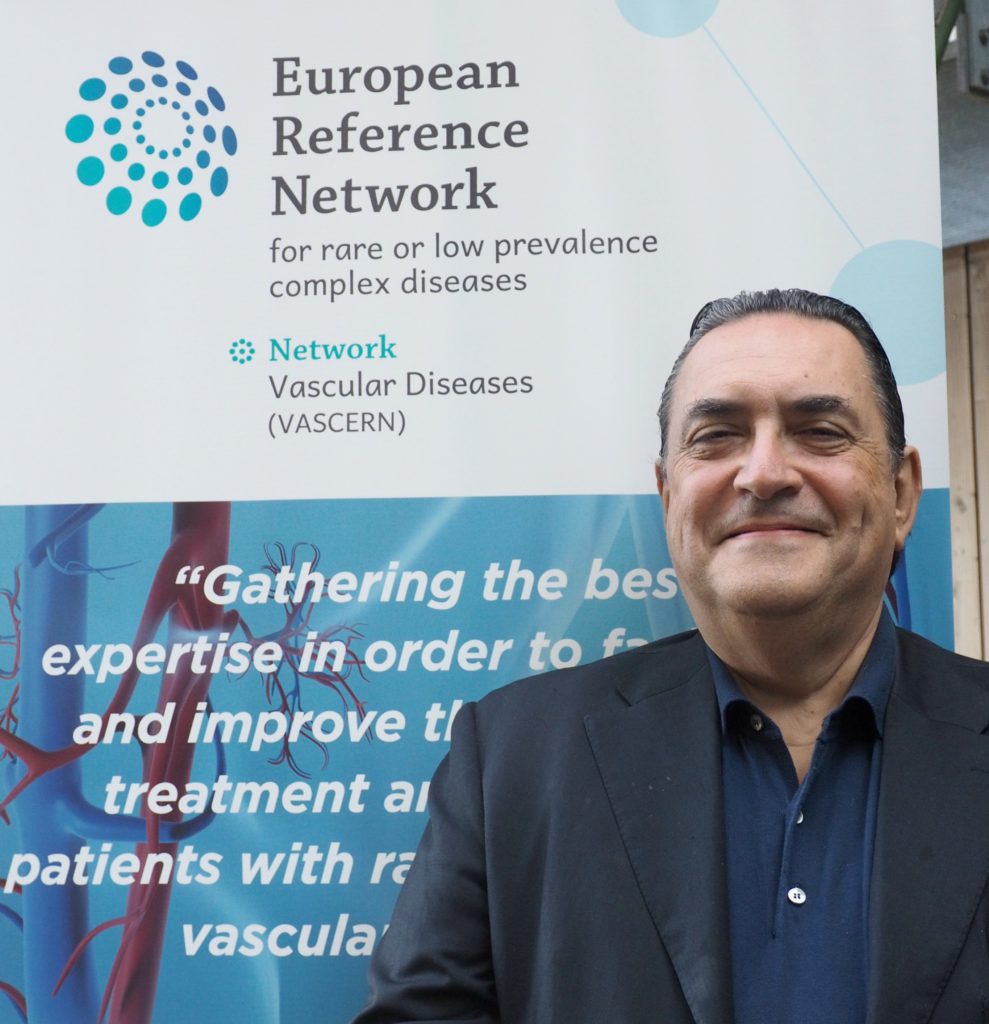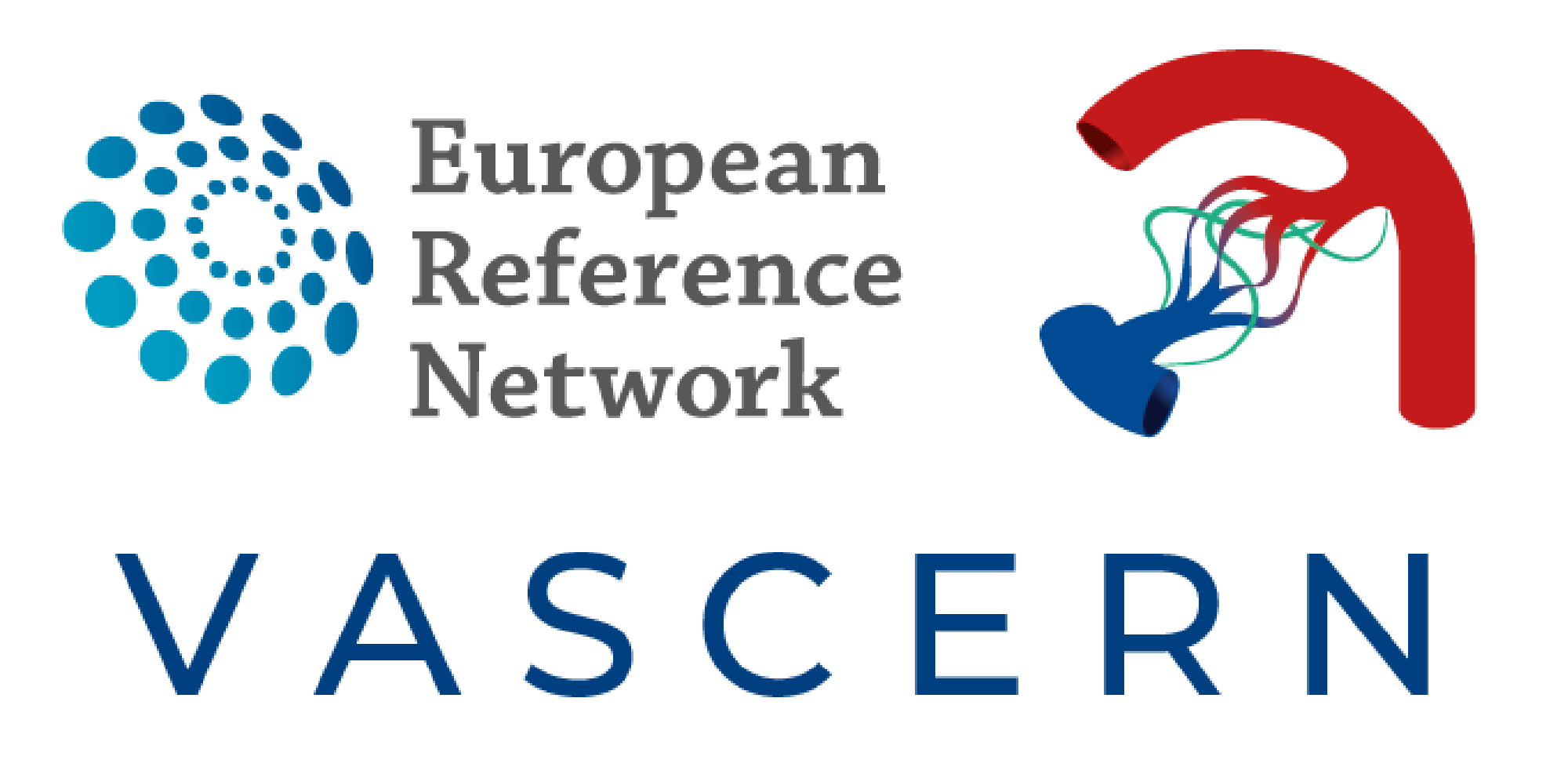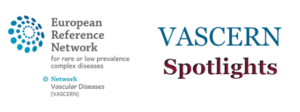
VASCERN Spotlights: Alessandro Pini

This month we had the chance to interview Dr. Alessandro Pini, a cardiologist from Milan, Italy. Dr. Pini is Chair of VASCERN’s eHealth Working Group as well as the Heritable Thoracic Aortic Diseases (HTAD) and Medium-sized Arteries (MSA) Working Groups. Read about how Dr. Pini became involved in VASCERN, his various activities within our network (including leading the VASCERN app project) and what are his greatest hopes for VASCERN.
1. What disease(s) do you specialize in (or what is your medical specialty) and what interested you in this field?
My first medical specialties were internal medicine and cardiology. I then further specialized in pediatric cardiology. I did my training in pediatric cardiology at the Sick Children’s Hospital in Toronto, Canada, as there were not many posts in Italy at the time, before going to Buffalo, in the United States, where I worked on congenital heart diseases. I then returned to Italy where I started work at Vittore Buzzi Children Hospital, Milan in the neonatal intensive care unit as cardiologist before moving to a pediatric and adult cardiology department. It is there that I started to follow a family with Marfan syndrome and although I thought that I was following them sufficiently, I quickly learned that it wasn’t enough and that these patients required a dedicated team of healthcare professionals. So in 1999 I started to really dedicate myself to rare vascular diseases, in particular those affecting the aorta, which includes Marfan syndrome. I realized that the standard cardiac surgeon was not aware of the best way to evaluate and follow-up with these patients and that these patients deserved healthcare professionals dedicated to their conditions full-time. It was for this reason that I opened the Centro Malattie Rare Cardiologiche – Marfan Clinic (Mangiagalli & Vittore Buzzi Children Hospital and then Luigi Sacco General Hospital) so that patients could find dedicated healthcare professionals that specialized in their rare disease. At the clinic I work with both neonatal/pediatric and adult patients, ensuring a continuity of care for those patients throughout their lives, which is so important.
I truly feel that VASCERN is the right choice for our patients as more centers collaborating in our network equals more patients discussed and more experience shared.
2. How did you become involved in VASCERN?
I have always believed that the network philosophy is the right way to share information in order to offer the best treatment to our patients. Unfortunately, quite often Healthcare Providers are rather independent and do not interact much between each other. So when I heard about the European Reference Network (ERN) project I thought that it was the perfect occasion for these interactions to finally happen. It was a lot of work to complete the application as our hospital is not a University hospital dedicated to research, but a hospital dedicated to care. We had to strictly follow the endorsement procedure in order to be included and this required a lot of paperwork, but we succeeded. I truly feel that VASCERN is the right choice for our patients as more centers collaborating in our network equals more patients discussed and more experience shared.
3. What is your greatest hope for VASCERN?
I think that VASCERN has to be the starting point for other Healthcare professionals to understand that rare diseases are not so unusual and that they can be encountered at any time so we need doctors to familiarize themselves with these diseases and the problems related to them. I think VASCERN has the power to share the information and involve many healthcare providers (HCPs) that are not members of VASCERN. Most doctors think that rare disease patients are very rare and hardly ever encountered but this is wrong as if you take all rare disease patients together it equals about 6-8% of the European population. So in each hospital it is important to have someone there to inform HCPs on rare diseases so that these patients are not cared for incorrectly. Our Do’s and Don’ts documents can help with this but meeting colleagues and sharing information in order to enlarge the group of healthcare professionals interested in these rare diseases is also crucial. I also hope that (and this is a challenge in Italy) national networks can be set up in each country so that expertise reaches all hospitals and that no matter where a patient lives, when they go to their local hospital they can receive the proper care for their disease.
What makes me the most proud is that I am now meeting the sons and daughters of my patients that I started treating when they were children. I have seen them grow up, overcome problems, get married, have children and lead normal lives, despite their rare disease – and this is a wonderful thing!
4. What have you accomplished in your medical career that you are most proud of?
Firstly, I created the Marfan Clinic, with no help or funding from the institutions, and it was achieved thanks to my professional ethics, the love for my patients and the help from patients and patient associations. What makes me the most proud is that I am now meeting the sons and daughters of my patients that I started treating when they were children. I have seen them grow up, overcome problems, get married, have children and lead normal lives, despite their rare disease – and this is a wonderful thing! I wanted to become a doctor dedicated to rare diseases and at first this was not seen as a good thing for my career as everyone looked at me and thought that I was not pursuing a field that was as important as a traditional field (such as arrythmology etc.), but the center that I started became one of the most important in Italy and I am so proud of it and so happy to now see the second generation of my patients doing well.
5. Are you currently involved in any research projects or clinical trials? If so can you please describe them briefly?
We have about 11 research projects currently ongoing. As I mentioned previously, we are not a HCP dedicated to research but as we have so many patients that are extensively followed in our database (which is very complete and continuously updated), we have participated in many joint ventures with research institutes who work with us. They come to our center to evaluate the data in our database so we are publishing a lot of important papers. Vascular reactivity, aortic compliance, genetic rules for understanding why the same genetic mutation leads to many different phenotypes, mechanisms related to the intracellular and extracellular origin of aortic ectasia, the evaluation of simple circulating markers that can pick out aortic aneurysms, craniofacial characteristics of Marfan syndrome patients, psychology of HTAD patients (what role personalities play), and twin studies with Marfan syndrome patients are all examples of studies underway. Thanks to the partnerships with research institutes our data, which stretches over a 20 year period, can be used for important research projects like these.
6. What VASCERN activities do you participate in and which are your favorite?
Firstly I am Chair of the E-health Working group, which involves a lot of work. The VASCERN app was officially released in January 2019 and we are looking forward to future developments of the app already, in the second and third version. The eLearning is another target of interest of our group, as is the communication. For nearly 18 years I was one of the Italian partners of one the biggest communication agencies in the world called Saatchi and Saatchi healthcare. So I am using all of the communication strategies that I learned in this agency to make VASCERN’s communication strategy strong as it is essential to raise awareness about VASCERN in the medical community and the patient associations. The Clinical Patient Management System (CPMS) is one of my favorite activities as it allows discussions of patients with members of the HTAD and MSA groups that I belong to.
VASCERN app is a weapon for the patients to combat their rare vascular disease!
7. What are the main achievements of VASCERN to date? What challenges does VASCERN still face?
The main achievement is firstly that we have created this amazing group! It is very difficult to mix different personalities and ways of thinking so I have to thank Prof. Guillaume Jondeau for being a great coordinator. He makes sure that everyone stays on track and follows the rules and tries to keep things as simple as possible for everyone. Second achievement is the creation of the VASCERN app, as it is a wonderful result for an ERN and we have many other ERNs who are interested in doing this too, so we should be very proud. Our list of Pills of Knowledge (PoK) videos on YouTube is also very impressive as we are one of the first ERNs to realize these outputs. We have started drafting guidelines and this is also a great achievement.
One challenge we have is to facilitate the interactions between healthcare professionals as it is often difficult to do this due to limited availability of experts. The CPMS is a really good tool to allow these exchanges on patient cases to happen. Discussions are so important. Exchange and communication between all medical personnel including doctors, students, and nurses should also be encouraged. The development of common research projects/clinical trials within VASCERN is another challenge that I hope we can achieve. There are many barriers that go along with multinational research projects but I think that we will overcome them.
8. Can you quickly talk about the VASCERN app?
VASCERN app is a weapon for the patients to combat their rare vascular disease! It allows patients to find the nearest healthcare provider or patient association closest to them (with a maps tool) and is available for free download on both Play Store and Apple Store. It is currently available in English but translation into other languages is planned. VASCERN App will be constantly monitored and updated (evolutions within our members, adding new HCPs and new patient organisations). New features envisioned in the future include the possibility of sharing of information between HCPs, patient associations, and patients as well as availability of rare disease information and a possible e-Learning platform.
To learn more about the VASCERN App click here


